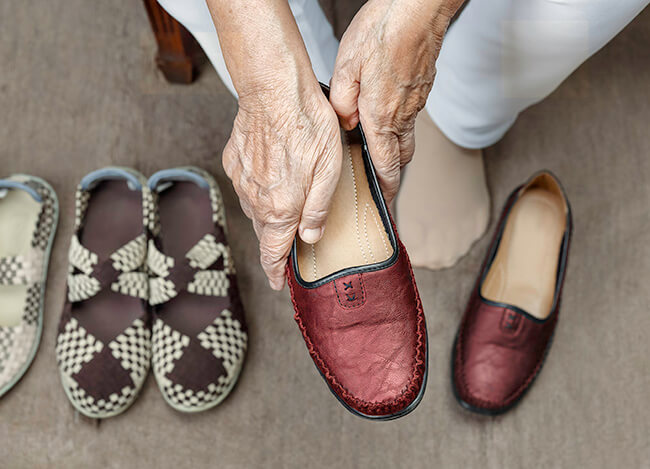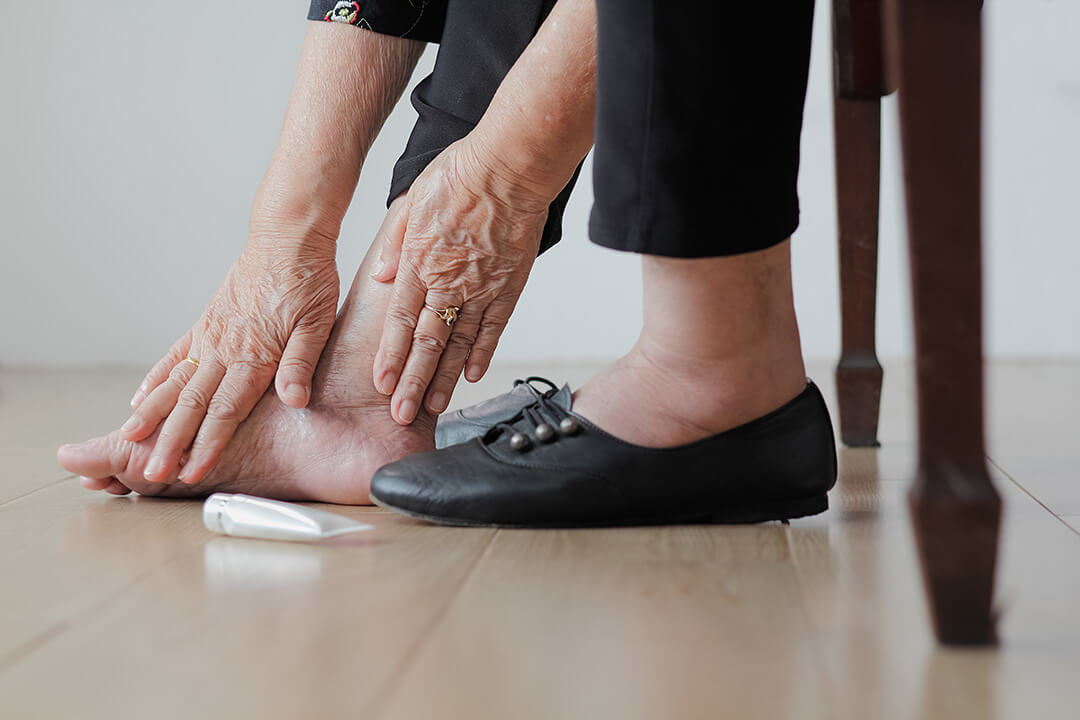Living with diabetes requires diligent attention to overall health and wellbeing. Among the many aspects of self care, foot care plays a critical role, as individuals with diabetes are prone to develop complications that affect their feet and lower limbs. Diabetic neuropathy, poor circulation, and slower wound healing are common challenges. However, by adopting a proactive approach and implementing appropriate foot care practices, individuals can significantly reduce the risk of complications. In this blog post, we will outline essential diabetic foot care.
Regular Foot Inspections
Performing daily foot inspections is crucial for early detection of potential problems. Examine your feet carefully, paying attention to any cuts, blisters, redness, swelling, or changes in skin color. Check for ingrown toenails, calluses, or corns. If you have difficulty examining your feet, seek assistance from a family member or use a mirror.
Maintain Optimal Foot Hygiene
Keeping your feet clean and dry is essential in preventing infections. Wash your feet daily with lukewarm water and mild soap, ensuring thorough drying, especially between the toes. Avoid soaking your feet for extended periods as this can strip the skin of essential oils, leading to dryness and cracking.
Moisturize Regularly
Apply a moisturizer or emollient cream to your feet daily, excluding the areas between the toes. Moisturizing helps prevent dry skin and reduces the risk of cracks or fissures. Opt for a fragrance-free, hypoallergenic product to minimize the risk of irritation.
Trim Nails Carefully
Trim your toenails straight across, avoiding curved edges. Use a nail file to smoothen the edges gently. If you have difficulty reaching or managing your nails, consider seeking professional help from a foot care nurse. Avoid cutting the corners of the toenails too deeply to prevent ingrown toenails.
Choose Comfortable, Properly Fitted Shoes
 Wearing appropriate footwear plays a significant role in foot care for individuals with diabetes. Opt for shoes made from breathable materials that provide ample support and cushioning. Avoid high heels, narrow shoes, or those with pointed toes that can cause pressure points or restrict blood flow. Ensure a proper fit by having your feet measured professionally.
Wearing appropriate footwear plays a significant role in foot care for individuals with diabetes. Opt for shoes made from breathable materials that provide ample support and cushioning. Avoid high heels, narrow shoes, or those with pointed toes that can cause pressure points or restrict blood flow. Ensure a proper fit by having your feet measured professionally.
Wear Diabetic Socks
Diabetic socks are designed to enhance foot comfort and reduce the risk of complications. They offer extra cushioning, support, and moisture-wicking properties. These socks help prevent pressure points, blisters, and calluses. Diabetic socks also aid in regulating foot temperature and improving circulation.
Promote Healthy Blood Circulation
Encouraging healthy blood flow to your feet is vital in diabetes foot care. Engage in regular physical activity, such as walking or low-impact exercises, to enhance circulation. Avoid sitting or standing for prolonged periods. If necessary, elevate your feet while resting to reduce swelling and encourage blood flow.
Diabetes Management
Properly managing your diabetes is crucial for maintaining foot health. Control blood sugar levels through regular monitoring, adhering to a well-balanced diet, and following prescribed medications or insulin regimens. Consistent blood sugar control aids in preventing or delaying nerve damage and circulation issues.
Regular Check-ups
Schedule regular visits with a foot care nurse who specializes in diabetic foot care. They can assess the condition of your feet, identify any potential problems, and provide appropriate treatments or recommendations. A foot care nurse can also guide you on proper foot care techniques and footwear selection.
Caring for your feet when you have diabetes is a vital aspect of managing your overall health. By incorporating these foot care tips into your daily routine and staying vigilant about any changes or abnormalities, you can minimize the risk of worsening symptoms or long-lasting damage. If you have difficulty with any of the above aspects of diabetic foot care, contact us to book an appointment. Our Professional Foot Care Nurse, Sharon Brophy can help.

